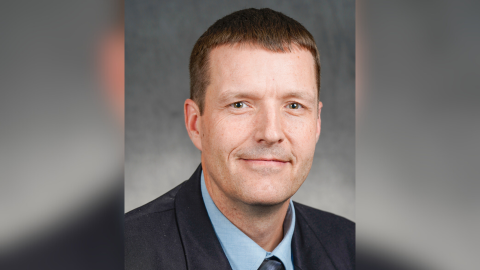MINNEAPOLIS — As Minnesotans mourn those killed in Wednesday's mass shooting, public frustration is mounting over the frequency of such attacks in the United States.
Local researchers recommend a comprehensive and compassionate way of spotting warning signs and responding to them. The deadly attack on students at a Minneapolis Catholic school has again brought gun violence back in the spotlight.
James Densley, professor of criminology and criminal justice at Metro State University and deputy director of the Violence Prevention Project Research Center at Hamline University, said his team's recent findings showed those who carry out school shootings are often in a noticeable crisis, meaning students, staff, and parents should be trained to recognize concerning behavior, and how to report it.
"A lot of this is really around communication that people trust in the systems that are going to get people off of that pathway to violence," Densley explained. "So that they don't go looking for answers in the darkest corners of the internet."
He noted speaking up should not lead to punishment for the person in question but rather accessible and affordable forms of care. The Center also said mass shooters have significant trauma histories and researchers recommend a more thorough screening of childhood trauma as kids grow up. Densley acknowledged challenges, such as peers not wanting to be seen as "snitches" for reporting someone.
Densley and his colleagues said the recommendations complement detection systems already in place or other often-discussed solutions, including safe storage of firearms. He emphasized it cannot just be about preparing for a situation where a person in crisis no longer cares whether they live or die and is willing to kill others in their "final act."
"That is very hard from a deterrent standpoint to figure out how we go about preventing this through usual security apparatus," Densley noted. "Instead, we really have to get more upstream of these problems because these are shootings that are rooted in despair."
Densley added they have interviewed people who have carried out mass shootings, along with those who had their attack plans thwarted. For situations where a tragedy was avoided, he stressed there was a common factor serving as a blockade.
"Many times it was a human intervention," Densley underscored. "It was an act of kindness that gave them hope and a reason to live. And it may sound simplistic but time and time again, it was that human connection that really made the difference."
As for warning signs in someone they know, he advised people should be mindful of dramatic changes in behavior, including aggression or an unexpected flurry of social media posts centered around grievances.\
-
If selected, the project partnership would connect community ideas with University of Minnesota resources. Applications are due Feb. 14, 2026.
-
Participants can vote once and select up to eight winning names through noon Feb. 13, 2026. The agency selected 30 finalist names from more than 6,700 submissions.
-
The number of four-day school week school districts in Northern Minnesota and across the country keeps growing. Communities are fiercely loyal, but researchers say there are still lots of unknowns.
-
Plus: the Minnesota State Patrol recently honored troopers and citizens for their heroic actions; and high school Nordic skiiers will soon compete in Biwabik.
-
Davis, of Crow Wing County's Mission Township, was first elected to the state Legislature in 2022.
-
The merged company now owns more than 4 million acres in forest holdings across the U.S. PotlatchDeltic denies any allegations of wrongdoing at Bemidji mill in new court filings.
-
Plus: Deer River School District considers moving to a four-day school week; and Cass County is taking comments its environmental assessment of a development near Gull Lake.
-
Superintendent Pat Rendle will bring the alternative schedule application to the Board on Feb. 11, 2026, for what he wants to be a final decision.
-
Minnesota Power and American Transmission Co. LLC are proposing to construct approximately 67.5 miles of transmission line between Grand Rapids and Hermantown.
-
The meeting is scheduled for 5 p.m. Feb. 10, 2026, and is intended to create a common vision and guidance for improving safety and efficiency in the corridor.














